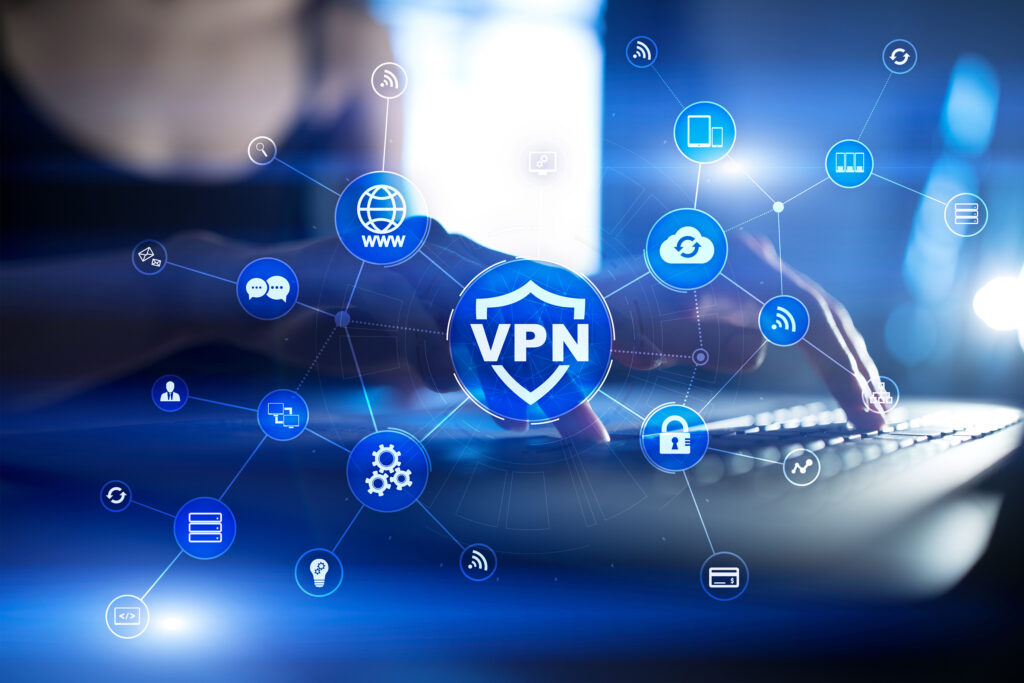
As our world becomes increasingly digital, cybersecurity has become a top priority for businesses of all sizes. It’s more important than ever to establish robust IT network security measures to safeguard your organisation from cyber threats. Here’s a list of 14 ways to do that.
IT Security Measures That Businesses Should Be Implementing
14 essential IT network security measures that you can implement in your business to safeguard against threats.
1. Protective Software For Remote Workers
Protective software, such as endpoint software, virtual private networks (VPNs) and antivirus programs, can protect remote workers and your data from cyber threats. Ensure that all remote workers are using protective software and that it’s kept up to date.
2. Block Access
Implement access controls and restrictions to limit access to sensitive data and ensure that only authorised personnel can access it.
3. App Security
Ensure that all software and applications used by your business are secure and up to date. Regularly update all software and apps to address known vulnerabilities.
4. Educating and Training Staff
Educate your staff on how to identify and avoid potential cybersecurity threats, such as phishing attacks and malware. Provide regular training and ensure that your staff are aware of your organisation’s security policies and procedures.
5. Cloud Security
If your business uses cloud services, ensure that the cloud provider is highly experienced and has robust security measures in place. Choose a managed cloud services provider in Brisbane that offers encryption and access controls to protect your data.

6. Policies
Develop and implement comprehensive security policies that cover all aspects of your business security. Ensure that all employees are aware of these policies and understand their roles and responsibilities.
7. Data Loss Prevention Technologies
Implement data loss prevention (DLP) technologies to prevent data loss and protect your business from data breaches. DLP technologies can help you identify and protect sensitive data and prevent it from being compromised.
8. Behavioural Analytics Tools
Incorporate IT network behavioural analytics tools, like Sophos, to identify unusual behaviour and potential security threats. These tools can help you identify and respond to potential threats before they enter your network or become serious.
9. Email Security Applications
Use email security applications to protect your business from phishing attacks and malware. These applications can help you identify and block suspicious emails and prevent them from reaching your employees.
10. Software and App Recommendations
Ensure that all software and apps used by your business are from reputable sources and have a good reputation for security. Conduct regular reviews of your software and apps to identify potential vulnerabilities.
11. App Whitelisting
Implement app whitelisting to control which applications can be installed and run on your network. This helps prevent unauthorised software and apps compromising your network.
12. Backups
Regularly backup your data to ensure that you can recover from a data loss event. Ensure that backups are stored securely and are easily accessible in the event of a disaster.
13. Multi-Factor Authentication
Enforce multi-factor authentication to provide an additional layer of security for your network.
14. Next-Gen Firewalls
Implement next-generation firewalls to provide advanced security features, such as intrusion prevention, malware detection, and content filtering. These firewalls can help you protect your network from a wide range of cyber threats.
IT network security is always evolving. With the services of a managed IT security company in Brisbane, you can rest easy knowing that your business and all of its data is protected, no matter where it’s accessed or stored.
Contact us for more information about our products and services.









